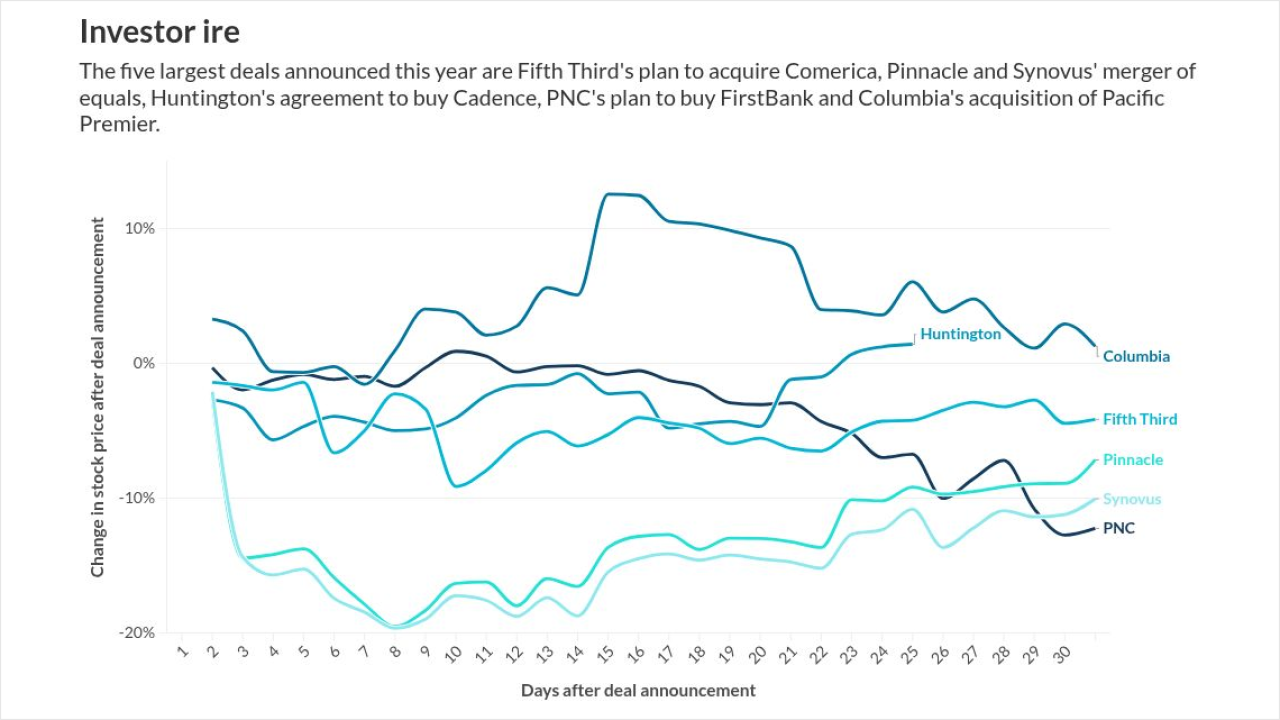Rimmy Malhotra likens his mobile microinvestment application to Weight Watchers for money.
Malhotra, founder and chief investment officer of Gratio Capital, a San Francisco company that runs the investing website GoalMine.com, has developed a tool that lets users link their investment accounts to their mobile phones. Consumers can set up an investment pledge and alerts to help them save and invest money in $1 and $3 increments.
"We think this is revolutionary for a number of reasons," Malhotra said. "I never thought I'd see the day when someone who is underbanked owns a piece of Berskhire Hathaway or when someone who shops at Wal-Mart owns a piece of Wal-Mart."
Malhotra and his business partner, Yaron Ben-Zvi, Gratio's chief operating officer, got some powerful validation on Thursday, as nearly 300 attendees of the sixth Annual Underbanked Financial Services Forum in New Orleans selected GoalMine as the winner of the Core Underbanked Innovators Challenge.
Gratio was among four finalists that Core Innovation Capital selected out of dozens of applications. Core Innovation Capital is the investment fund of the Center for Financial Services Innovation, which is putting on the conference in conjunction with American Banker. In addition to positive reinforcement, Gratio received a $10,000 cash prize.
Each finalist had seven minutes to demonstrate how its product works, then three minutes to answer questions that were culled from the audience through the conference's Twitter feed.
The other finalists were PayNearMe Inc., FlexWage Solutions and Fidelity National Information Services Inc.
"As today's presentations attest, innovation is alive and well," said Chris Bishko, investment director of Omidyar Network, a philanthropic investment firm, and one of the moderators of the challenge.
With Gratio, users can stay on track with their investment goals by programming their phones to send them a message every time they walk into a Starbucks, for example, encouraging them to put the $3 they were going to spend on a latte into their investment account instead.
"With the click of a few buttons, you can skip that latte and invest it," Malhotra said during the company's presentation. "We're taking the money off his prepaid account and dropping it into his kid's college account."
The GoalMine.com website is designed to offer consumers simple investment options. Consumers can open an account with as little as $25, choosing between three mutual funds and one savings account. The website helps them create a specific investment goal, like saving for retirement, a wedding, a home or a child's college education.
"We're trying to reinvent investing," Malhotra said.
The PayNearMe service offers consumers the ability to conduct a wide range of transactions, including making a payment on a loan or utility bill or wiring funds at the sales counter of 7-Eleven convenience stores around the country.
"This is a cash payment network," said Danny Shader, PayNearMe's founder and chief executive. "This is a cash drawer for your remote business transactions."
FlexWage Solutions showcased a product that enables consumers to access their earnings before payday. It is a payroll card program designed as an alternative to payday loans. Run by Frank Dombroski, who previously oversaw the payroll card program at JPMorgan Chase & Co., FlexWage works with employers to provide workers with the option of receiving wages on a debit card.
Employees who may need emergency cash between paychecks can access the money they've earned up to that point without having to wait until payday for what FlexWage describes as a "modest," yet undisclosed, fee. Companies can limit how much and how often employees can tap into pay between pay periods. The employees who access the funds are charged a small transaction fee, while companies pay a monthly fee of between $1 and $2 per employee to offer the service.
The financial technology giant FIS unveiled a new service that enables consumers to deposit checks onto prepaid cards from anywhere using their mobile phones.
After the presentations, audience members texted to vote for their favorite innovative financial product "American Idol"-style. The GoalMine service won with 38% of the 280 votes.
Alex Cooper, managing partner of Paysis, a payments industry consulting firm in Haworth, N.J., did not vote for GoalMine, but he said it's an interesting business idea.
"GoalMine is fantastic," Cooper said. But he's unsure it will gain significant traction with a broad swath of underbanked consumers, saying it is likely to be most popular with young adults.
Instead, Cooper voted for FlexWage, calling it "the most practical solution" among the four contestants.
"The FlexWage product is so simple," Cooper said. "There's still a challenge in payroll cards in general … getting the employees to do it. He [Dombroski] has created a very good value proposition. There's a better reason for the employee to say I can use this payroll card and get cheap access to advance funds."
Malhotra acknowledged that GoalMine is being used by the banked and unbanked alike.
"We see people quit accounts at Charles Schwab, ING and get accounts with us," he said. "We're seeing mainstream consumers come to us."
One key question is whether investment product is appropriate for the Among the underbanked, many of whom have limited financial resources and may not be well positioned to sustain investment losses.
Consumers will soon be able to buy investment insurance for their accounts, Malhotra said.
More than 600 professionals from the financial services, nonprofit and government sectors have gathered at the Underbanked Forum, the conference's largest turnout ever.
This year the focus is on moving beyond a dialogue about how to serve the underbanked and to identify and implement concrete strategies.
"Financial services really have the potential to be a positive force in people's lives. Right now they tend to be a reminder of how bad folks have it financially," said Jennifer Tescher, CFSI's president and CEO. "The question I want to ask today is what are we doing about this? At an individual level many financial services companies are trying to address this. … But this isn't just about marketing and it's not about any one company. It's about us as an industry, as a field and I don't think any one company can solve this problem."





